#本分
Text
提升或墮落,僅在一念之間
以下為一位有緣人分享:
近來家中發生了很多事,讓我重新檢視自己與家人的關係,以及其他人際關係。
修行真的都是在生活中修,家庭、婚姻、職場、社區、鄰居……等等,只要有人的地方,就是最好的修行道場。
從小到大,我就是一個不擅溝通的人,每次遇到問題,我就會選擇忽略或是逃避,把情緒悶在心裡,任其發酵、翻騰,到最後承受不住時,就會爆炸,傷人傷己。我常常遇到這樣的考試,也常常被烤焦,重頭再來。修行真的是要戰戰兢兢、如履薄冰,每走一步都要謹慎小心,才不會誤入歧途、修偏沉淪。
我發現自己的問題就是很常用個人的情緒感受去面對問題,再加上負面能量來時,會主觀地認定一個人與事情,但後來才發現與我所認知的根本就天差地別,誤會就是這樣產生的。每個人都要為自己的人生負責,沒有人一定要為別人付出什麼。需要與想要是完全不一樣的,「需要」僅是維持生活所必需,沒有慾望、沒有貪求,心才能清淨安定;「想要」是貪嗔痴的累積,貪嗔痴越重,欲望越多,物欲橫流,心就越不清淨。
修行就是回歸自己,回歸生活,回歸做好一個人應該做的本分,圓滿與身邊人事物的關係,不生分別、計較、攀緣、貪求,心才能輕安自在。
阿伯說:「當修行與修練遇到瓶頸、挫折與干擾時,有人選擇畏縮、退卻、逃避;有人選擇超越、增上、加強。正確的思想與觀念,影響你人生的高度與成就。要成為那一種人,都是自己人生的功課。」
修行的路真的不簡單,要有堅強的意志好好面對。所幸自己身邊有很多善知識幫忙提醒,真的非常感恩。要更加努力用心修行,修除惡習、突破盲點,才能破迷開悟。期許自己未來也能成為一位善知識,弘法度眾,利益眾生。
(分享完畢)
有緣人分享:「修行就是回歸自己,回歸生活,回歸做好一個人應該做的本分,圓滿與身邊人事物的關係,不生分別、計較、攀緣、貪求,心才能輕安自在。」
生活中處處都是佛法,處處都是修行,處處都有可以提升心性的契機。修行不是只有誦經打坐的例行功課,而是要將佛經中的智慧落實到生活當中,「以經為師」,腳踏實地,一步一步地修正染污的心,自性才能漸漸顯露。
「無考不成佛」,每一個人都有自己的修行功課與考驗,這些考驗都是來幫助我們成長的良機,把握每一次的磨練與考驗,善用在佛經中所學到的智慧,懺悔改過,一點一點地突破盲點、修正無明習氣,貪嗔痴就能一層一層地剝除脫落,找回本自俱足的清淨佛性。
《阿伯的話─現場開示精華節錄》:「佛要有魔來考,才能成就;佛要有魔來磨,才能成佛。成佛,離不開魔考,有人來磨你,是你的大福報;沒有人磨你,難以成就。」
「在修行,就會有修行的考試,應無所住,修得越高,考試越多。修行的考試,若還有起心動念,代表沒考過;修到後來,斷情、斷愛、斷欲,財色要兩斷,自己要一直練習。這是一種內心的轉變,不是關係一刀兩斷,生活還是要過,家事、工作一樣要做,一樣如常地生活,只是對待人事物的執心轉變了、昇華了。」
「佛菩薩的考試,是看你有沒有真誠改過,若沒有真誠改過,你不是對不起佛菩薩,而是對不起你自己。」
「人身難得,佛法難聞」,每個人來到這世間都是來修行的,佛法難聞,能得遇佛法真的是大福報。人不可一日離開修行,否則無明會越積越多,遇到一丁點兒不如意就會大量地發作,這就是人生災難的開始。小無明發生小災難,大無明發生大災難,人的一天有24小時,若是時時刻刻都在爆發無明,就時時刻刻都在承受災難;若是天天都在爆發無明,那就天天都有災難。沒有修行,人的貪嗔痴就會越來越旺盛,無明習氣越來越顯露,傷人傷己,何時才有片刻的清淨安寧?因此,每個人一定都要修行,唯有修行才能消除無明,唯有修行才能清淨,唯有修行方可保平安。
《阿伯的話─現場開示精華節錄》:「修行不是為了遇見佛,而是為了提升心性、明心見性、顯露佛性。」
「人會墮落,是因為警覺性不夠,是『貪』害了他;找回佛性,無法靠外來的力量,而是要靠自己依循佛法,大量誦經,轉識成智。」
「早上與晚上都要唸經,人離開修行,獸性就會大發,災難就會來。修行,去除塵勞汙染,彰顯佛性,這樣才能安全。災難與瘟疫,喜歡找黑氣多的人,黑氣越少,就越安全。」
「修行、誦經的真諦是要提升心性、明心見性,要用《金剛經》、《六祖壇經》來洗滌被汙染的心性。道理看似簡單,做起來卻不容易。要能確實地誦、真實地轉、切實地悟。心性若轉,唸經速度會很快。若能真正聞、思、修,真正明瞭佛法並且悟道的話,則根本不需要這麼多的時間來讀誦經典,因為心性已經提升,黑氣已經淨除,並且運用佛法,通用無礙(如同佛陀講經說法,都是從自性流露出來,根本不需要講義一樣);然而,正因為你現在還沒開悟,所以誦經千遍、萬遍都是必要的。」
淨空法師開示:
人生沒有一樣不是好事,遇到善人是順增上緣,遇到惡人是逆增上緣,統統都增上,幫助自己提升,幫助我們消業障。順境消福報,逆境消惡報,統統是好事,統統是佛事。能消業障,怎麼不是佛事?所以菩薩滿心歡喜,法喜充滿。
喜從哪來?善人替他消福報,惡人替他消災殃,所以快樂無比,這有智慧。沒有智慧的人看不到,遇到善他執著,情執,造業了。遇到惡他怨恨,又造業了。後面果報無窮,那叫大錯特錯。有智慧的人到此為止,後面沒有了。
禍福相承,這句話尤其重要。承,《會疏》解釋:受也,繼也。蓋宿世業因,善惡夾雜,故後世受報,或先樂後苦,或先苦後樂,苦樂相繼,禍福相倚,故云禍福相承。
禍當中有福,福當中有禍。如果覺悟,用覺心,禍裡有福。如果用的是迷,凡夫,福裡有禍,過度享福則造孽。譬如大富大貴,每天飲酒吃肉,享福,不知道造了這個業,後面是禍在等著他,福裡有禍。如果大富大貴,學佛,持齋唸佛,遇到災難,災難裡有福。享清福,再艱苦的生活也不以為然,他很滿足、很歡喜。
禍福沒有一定,唯心所現,覺悟的心,禍變成福,迷的心,福變成禍。佛法為什麼把般若擺在第一,般若是智慧,那就有福沒有禍,遇到禍也是福,不生煩惱。他在災難裡沒有委曲相,沒有怨恨的念頭,處之泰然。(引用完畢)
修行沒有捷徑,佛助自助者,唯有用心努力,才能承受千考萬考、千磨萬磨的過程。修行的過程都在歷練,越用心,佛菩薩給的考驗越多;越努力,突破提升的契機就越多。透過修行才能真正地改變既定的命運,否則只是隨波逐流,在輪迴道中來來去去,苦不得脫、無有出期。
「天下無難事,只怕有心人」,要不要修,是自己的選擇;修不修的好,也是自己的選擇。突破或放棄,僅在一念之間,放棄很容易,地獄不遠矣;突破並不難,堅持就可以。修行貴在堅持,要誦經、行經、自悟、自覺,腳踏實地去努力,修行之路就能越來越圓滿,人生就會越來越光明。


南無本師釋迦牟尼佛
南無藥師琉璃光如來
南無阿彌陀佛
南無大悲觀世音菩薩
南無大願地藏王菩薩
南無韋馱菩薩
南無伽藍菩薩
南無十方一切諸佛菩薩摩訶薩
0 notes
Text
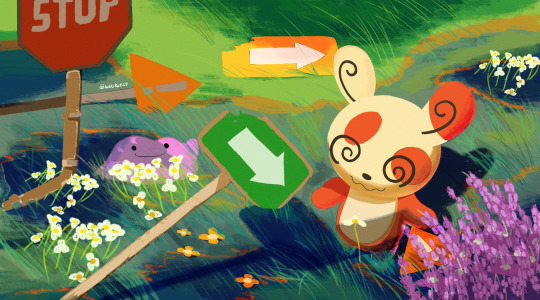
WHICH WAY?
#anipoke#pokemon#pokemon fanart#clip studio paint#パッチール#spinda#digital art#digital illustration#fanart#fanart digital#games#nintendo#pkmn art#pkmn fanart#pkmnart#ポケモンイラスト#ポケモン版深夜の真剣お絵描き60分一本勝負#ditto#gen 3 pokemon#gen 3#art
1K notes
·
View notes
Text
Happy Tewi.

I tried drawing her bullet patterns, too.
#東方Project#touhou project#inaba tewi#深夜の真剣お絵描き60分一本勝負#drawn in one hour at night#1draw#koubudraw#tegaki#tegakidraw#因幡てゐ#ワンドロ
321 notes
·
View notes
Text

趣味を詰め込んだイラストです!
深夜の真剣お絵かき60分一本勝負のやつです!
149 notes
·
View notes
Text

🐹🐱🐱 Day with the two cats and their hamster (Don't worry, he's ok ☺️).
#青エク版深夜の真剣60分一本勝負#blue exorcist#ao no exorcist#tboes art#rin okumura#mephisto pheles#amaimon#青の祓魔師#アマイモン#メフィストフェレス#aoex#fanart
103 notes
·
View notes
Text
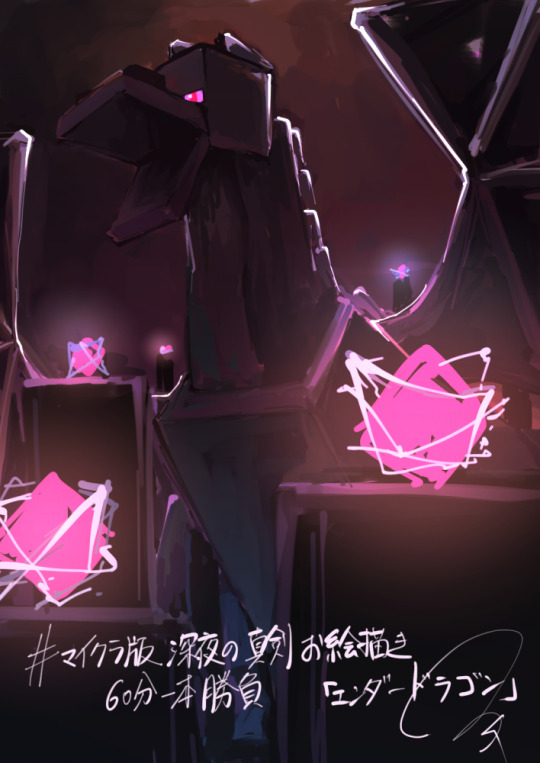
Ender Dragon
#マイクラ版深夜の真剣お絵描き60分一本勝負
136 notes
·
View notes
Text
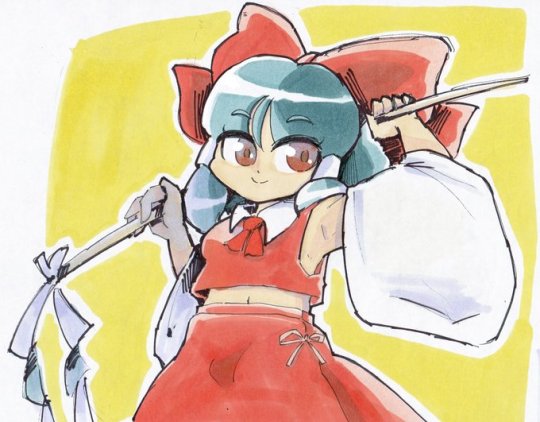

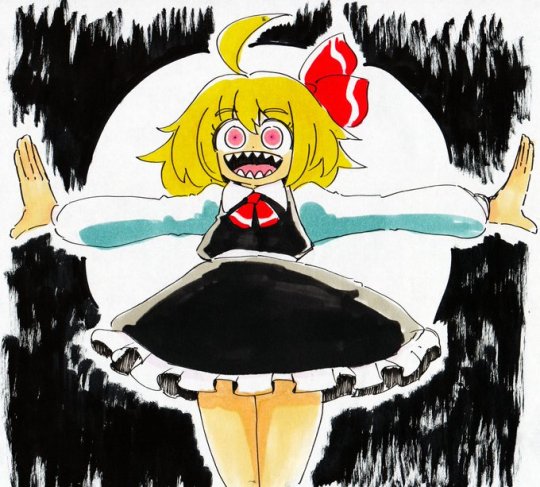



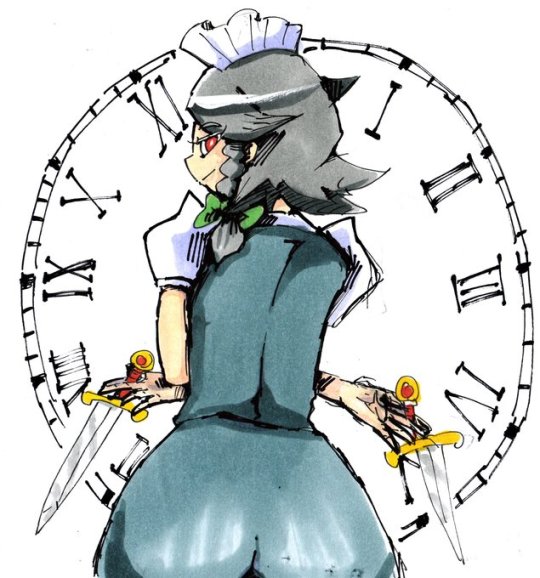
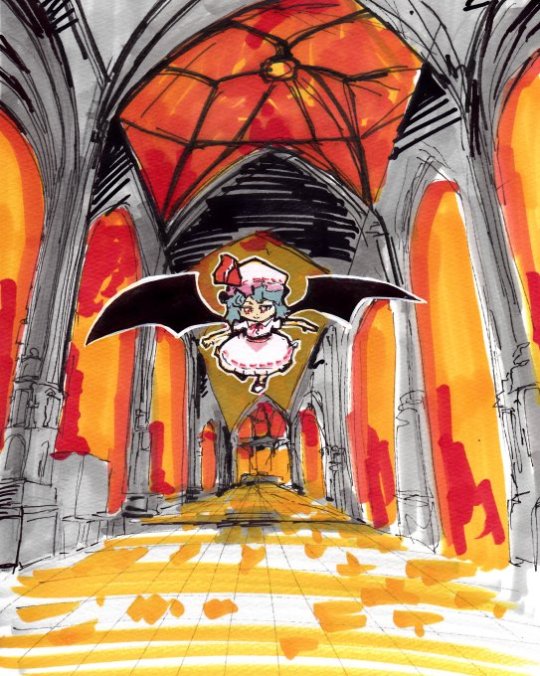
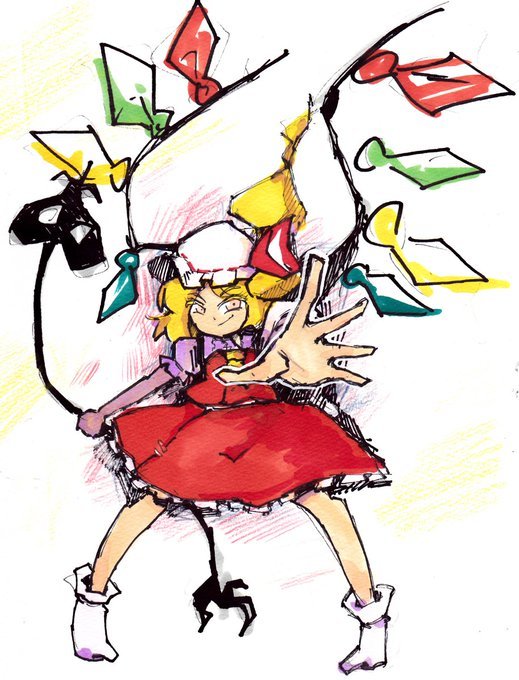
104 notes
·
View notes
Text
i wanna make some bots
#‧˚₊✩ 分子の本 ✩₊˚‧#resident evil vendetta#resident evil 2 remake#resident evil 2#resident evil 4#resident evil#resident evil 3#resident evil village#vendetta leon#leon kennedy vendetta#vendetta leon kennedy#leon kennedy#leon s kennedy#resident evil 4 leon kennedy#re4 leon#resident evil 2 leon kennedy#re2 leon#carlos oliveria#chris redfield#vendetta chris redfield#vendetta chris#luis sera#leon kennedy x male reader#chris redfield x male reader#carlos oliveria x male reader#luis sera x male reader#leon kennedy x female reader#chris redfield x female reader#carlos oliveria x female reader#luis sera x female reader
36 notes
·
View notes
Text
the teruki hanazawa arc seized me by the brain almost two years ago and still refuses to let go. teru is just warped in a slow-burn-horror kind of way, despite his apparent good cheer, and i find him tragically fascinating.

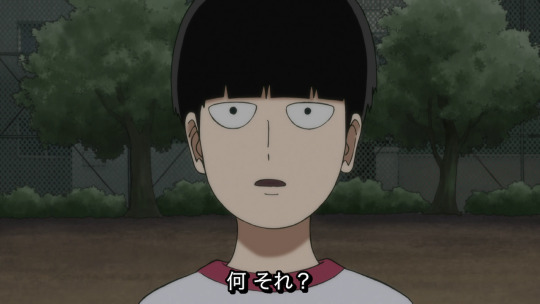
i looked up a word he attempts to bludgeon intimidate shigeo with in episode 5: 上下関係。
it's read じょうげかんけい (jougekankei).
for context, here's teru's dialogue where it appears:
「聞きたいことは いくつかあるけどその前にハッキリさせとかないとね。上下関係ってやつを差!」
ききたい こと は いくつ か ある けど その まえ に はっきり させ と かない と ね。じょうげかんけい って やつ を さ!
k'kitai koto wa ik'tsu ka aru kedo sono mae ni hakkiri sase to kanai to ne. jougekankei tte yatsu wo sa!
'i have some questions i want to ask you, but first i have to clarify something. between the two of us, who answers to whom?'
the english subs translate 上下関係 as 'hierarchy', though it's a little closer maybe to 'pecking order' or 'senpai/kouhai dynamics'. i couldn't even find it on a 15000-word japanese frequency list. fortunately, this 四字熟語 (よじじゅくご・yojijukugo・four-character idiom)'s individual components are common and easily assimilated; i was able to understand what it meant on sight:
上下 = among other meanings, high and low, top and bottom... the ruling and the ruled.
kanji: 'up, above' + 'below, down, inferior'.
関係 = relationship, connection, concern.
kanji: 'gateway, connection' + 'thread'
the katakanized english loanword for hierarchy, ハイアラーキー, is far more common in japanese. so why would teru use this word? why might he just drop it on shigeo without explanation as he does?
much of the vernacular co-opted by criminal organizations -- at least in anime -- tends towards the archaic and/or formal, in keeping with samurai ideals they profess to uphold. was this language he picked up from fending off claw mooks, alone, throughout his childhood?
knowing the exact word teru uses for 'hierarchy' lends even more hilarity in japanese to shigeo's bafflement when he hears it. it's unlikely that he would know teru's peculiar choice of expression, given his lack of interest in academics. the joke in the english translation falls a little flat IMHO, as the boy doesn't seem so poor a student as to be unfamiliar with the word 'hierarchy' or the concept.
i... i want to examine more of teru's language now in this arc, to see how much of it is as elevated as this word and his sense of self-importance here.
an edit (2023.03.31) for some minor errors in this post:
上下関係 actually isn't a yojijukugo... not all four-character expressions are four-character idioms, of course. i should have consulted the monolingual japanese dictionaries i use on this. ごめんなさい!
my transliteration of the line 「聞きたいことは いくつかあるけどその前にハッキリさせとかないとね。」 should have been:
k'kitai koto wa ik'tsu ka aru kedo sono mae ni hakkiri sasetokanai to ne.
i still get stumped semi-regularly by 〜て+おくcontractions in the wild. thank you @listlessnss for this and the previous erratum!
させとかない is just させる (to cause or make someone do. usually taught to JSL learners as an inflection of する) in its conjunctive affirmative form させて + 置く (as an auxiliary verb, here meaning to do a thing in preparation for something else).
'formal' would have been a better word choice than 'archaic' for describing 上下関係。上下関係 is not an archaic word, but it is uncommon-ish and more likely to be found in formal writings.
#langblr#mob psycho 100#mp100#mp100 meta#mp100 s1 rewatch#image described#image description in alt#japanese language#japanese#日本語#語彙#japanese langblr#language learning#kanji#usage notes#word usage#mp100 s1e5#200#hanazawa teruki#分析
223 notes
·
View notes
Text
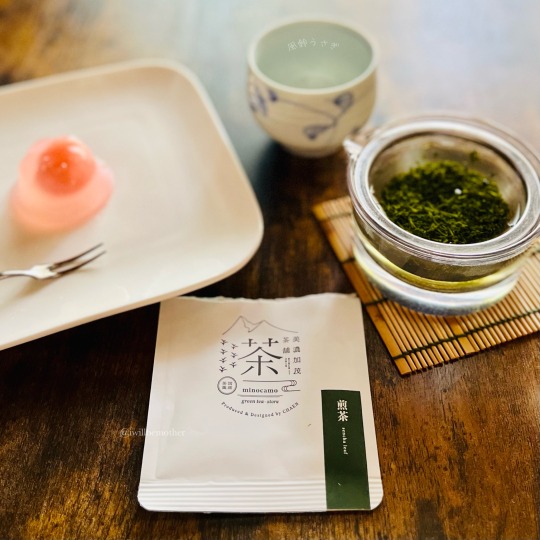

#tea#japanese tea#green tea#sencha#my post#my photo#yay \(^o^)/ gifu!#お茶#日本茶#緑茶#煎茶#美濃加茂茶舗#wagashi#和菓子#japanese sweets#水まんじゅう#緑水庵#5g80℃1分
95 notes
·
View notes
Text

#ポケモントレーナー版深夜の真剣お絵描き60分一本勝負
ノボリ+ ボチ
Ingo + Greavard 🕯️💖
502 notes
·
View notes
Text
“この世に客に来たと思えば、なんの苦もなし、朝夕の食事はうまからずともほめて食うべし。元来客の身なれば、好き嫌いは申されまじ。”
(「自分を動かす名言」・p202)
28 notes
·
View notes
Text
Hands in Pocket Mokou.

Reference:

#東方Project#touhou project#藤原妹紅#fujiwara no mokou#深夜の真剣お絵描き60分一本勝負#drawn in one hour at night#tegaki dt#tegakidraw#koubudraw#redraw#meme
212 notes
·
View notes
Text
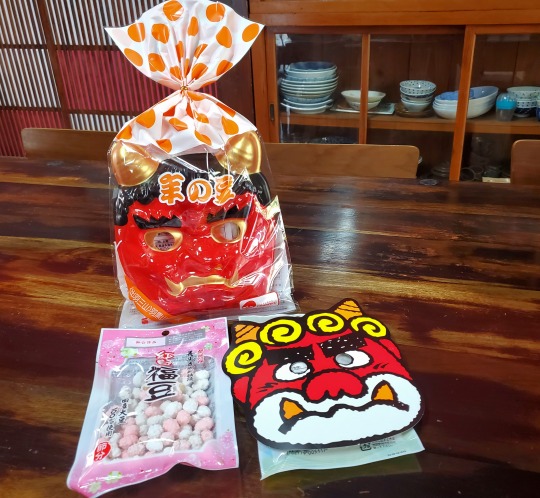
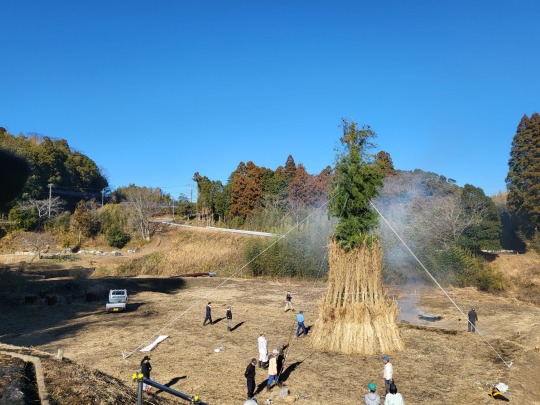
Setsubun
Today is Setsubun, and in our shi, that means dondo-yaki night and time to set this pyre alight and throw lots of beans around as we celebrate leaving winter and our worries behind!!!
37 notes
·
View notes
Photo

面白半分 1973年11月号
Half Serious Vol.24 Nov.73
五木寛之 編集
表紙絵=米倉斉加年
#面白半分 1973年11月号#面白半分#月刊面白半分#hiroyuki itsuki#五木寛之#masakane yonekura#米倉斉加年#anamon#古本屋あなもん#あなもん#book cover
175 notes
·
View notes
